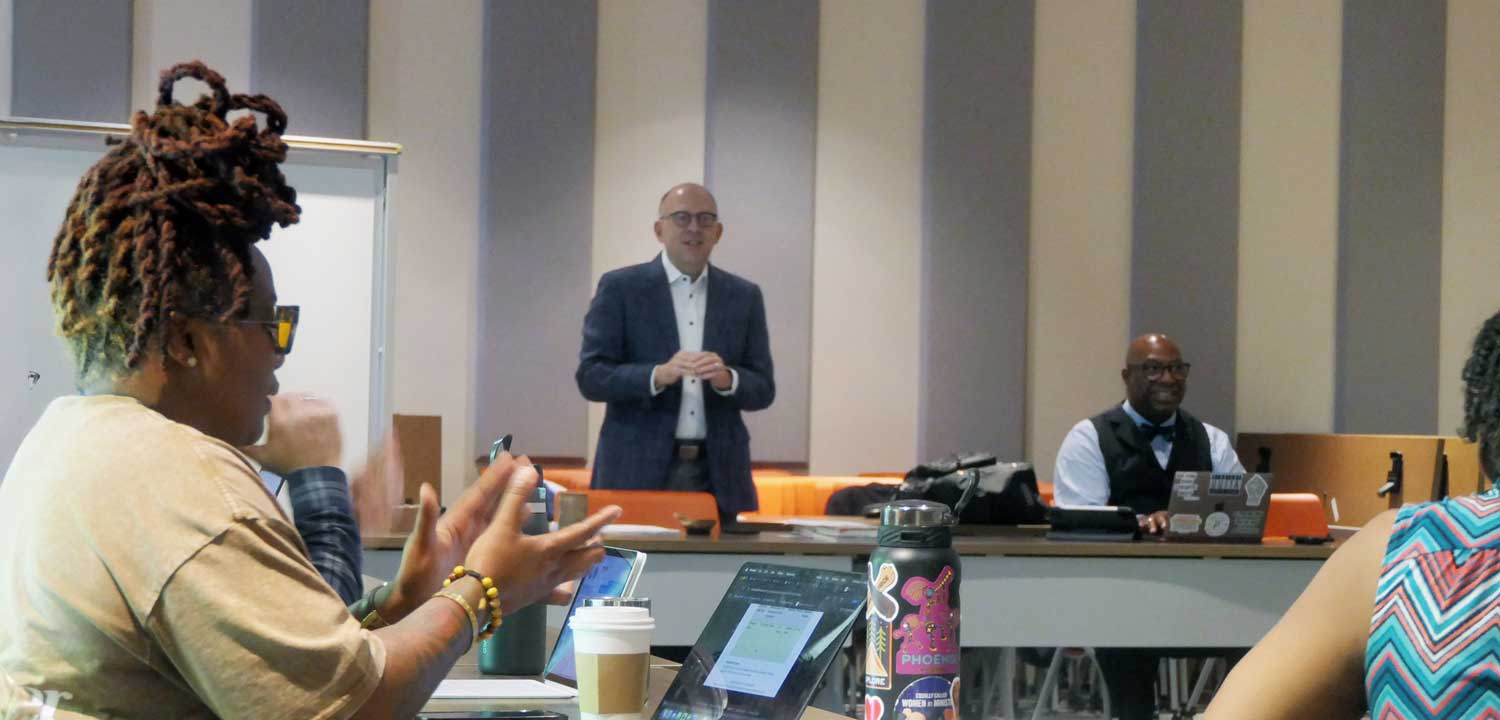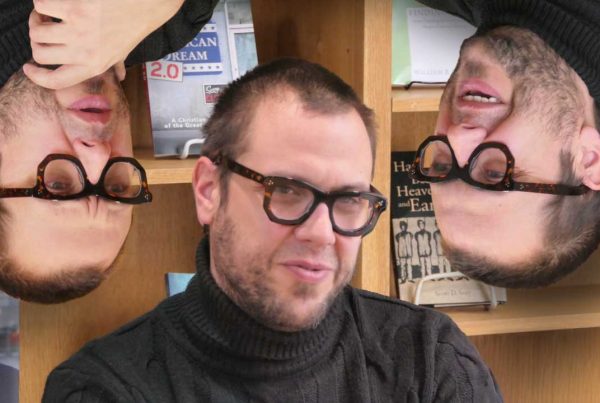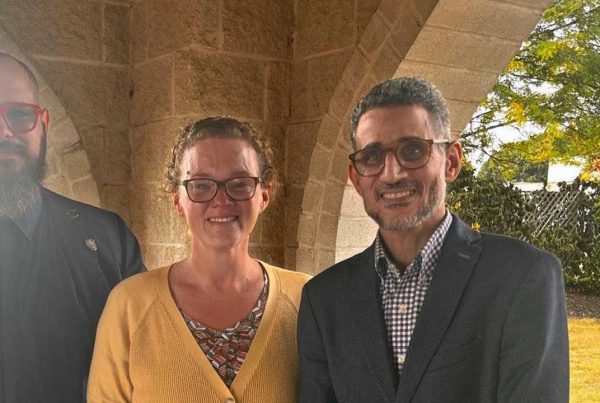Should I Go To Seminary If I Am Unsure About My Beliefs
At a progressive seminary like Christian Theological Seminary (CTS), “Should I go to seminary if I’m unsure about my beliefs?” is a question we hear often. It usually comes from people who are thoughtful, questioning, and seeking clarity — and that’s exactly the kind of person who belongs here.
“You don’t go to seminary because you have it all figured out,” said Reverend Dr. David M. Mellott, president and professor of theological formation at CTS. “You go to seminary to learn, to grow, and to explore.”
CTS is seminary of the Christian Church (Disciples of Christ), yet open to students from any background — creating a community where openness and questioning are embraced.
Whether you’re discerning a call to ministry or looking to deepen your theological understanding, CTS offers a space where uncertainty isn’t a weakness. It’s a place to begin. Through our Master of Divinity (MDiv) and Master of Theological Studies (MTS) programs, CTS supports students who want to wrestle with big questions, engage in honest dialogue, and grow in community with others who are on their own paths of exploration.
Spiritual Curiosity in a Progressive Seminary Community
The path of entering seminary with questions rather than certainties is one Dr. Mellott knows well. His father was Catholic, and his mother was Protestant — a dynamic that shaped his open-hearted, inclusive approach to faith and formation. Raised in a family that welcomed both Catholic and Protestant leaders into their home, he entered seminary at 18. What drew him wasn’t a rigid doctrinal system but a deep sense of beauty, ritual, and connection.
“I was attracted by the artistry of the Catholic Church and the music, the ritual, the smells,” he said. “It wasn’t always an intellectual pursuit. It was something more fundamental.”
Later ordained as a Roman Catholic priest and now a minister in the United Church of Christ, Dr. Mellott has spent decades in seminary classrooms, church communities, and leadership roles. Since 2019, he’s brought that experience to CTS — a progressive seminary that blends academic rigor with spiritual openness.
Should I Go to Seminary If I’m Still Figuring It Out? Dr. Mellott Weighs In
Dr. Mellott often speaks with prospective students who are uncertain about their beliefs and questioning whether seminary is the right place for them. His response? It absolutely can be.
“Ultimately, seminary is one big discernment process,” he said. “It’s exposure to ideas and people and practices and experiences and historical movements that then have an impact on somebody … that helps them get clarity about their own life and the direction they may want to take.”
Some students arrive with a strong theological worldview. Others are in the midst of questioning. CTS embraces both, encouraging growth through reflection, not certainty.
“You don’t have to know everything,” he said. “And it’s good to be curious.”
Progressive Seminaries Like CTS Welcome All Ages and Stages
For many prospective students, the question isn’t just whether they should go to seminary. It’s also about timing. Dr. Mellott encourages a shift in framing: “The better question is not, ‘Should I go to seminary?’ but, ‘Why now?’”
Students at CTS span a wide age range. “We’ve got people who are in their 20s, and we’ve got people who are in their 60s,” he said. “I think the oldest student I’ve seen here was 70.”
That diversity brings richness to the learning environment and affirms that there’s no single path or timeline for theological formation.
“You’re never too old to go to seminary,” Dr. Mellott added. “There’s something about being able to bring all of your life to the table that allows you to go deeper.”
Whether you’re pursuing seminary after college or answering a call decades later, CTS welcomes you into a community that honors your journey.
A Non-Denominational Seminary With Clear Values
For those wondering what kind of seminary CTS is, Dr. Mellott offered this: “We are not the school for everybody because we know what we think.”
While CTS welcomes theological exploration and uncertainty, it also holds clear commitments — especially around justice, inclusion, and how scripture is understood in community. In that sense, it may not align with all students’ expectations of seminary.
CTS is a non-denominational institution rooted in affirming theology and values-driven education. Students who feel called to serve LGBTQIA+ communities, advocate for racial justice, or challenge exclusionary interpretations of scripture will find CTS a place that equips them to do so with integrity and purpose.
Dr. Mellott named several non-negotiables:
- CTS affirms the ordination of women
- CTS affirms LGBTQ+ individuals as Christians and as ministers
- CTS centers racial equity and justice
- CTS does not teach a literalist interpretation of the Bible
“We’re very clear,” he said. “If a student comes in saying, ‘Well, I don’t really agree with that,’ I would say: I understand. They are welcome to study here, but they would need to know the boundaries of the conversation.”
CTS: A Seminary for Progressive Christianity and Spiritual Reconstruction
If you’re still on the fence about attending seminary with spiritual uncertainty, CTS welcomes students from more than 25 different denominations, as well as those unaffiliated with a specific tradition. Some students arrive firmly rooted in progressive Christianity. Others identify as exvangelical — a term used by those who have left evangelical traditions due to theological, cultural, or personal reasons, often while still seeking spiritual meaning.
Others come simply looking for a place where their doubts won’t disqualify them.
“Students should know that if you’re coming to Christian Theological Seminary, you’re not going to be expected to sign on to a specific set of religious beliefs,” Dr. Mellott said. “Instead, what we really want you to do is get clarity about where you are.”
CTS encourages progressive theology without forcing conformity. Belonging, Dr. Mellott explained, is a shared commitment. That shared commitment includes cultivating inclusive spiritual leadership and understanding how to walk alongside others with empathy.
“Part of belonging to me is you have to build the bonds of connection,” he said. “Because ultimately what we want is, we want students and our graduates not to think about, ‘CTS was where I went to seminary.’ What we want people to think about is, ‘CTS is my seminary.'”
What You Gain by Saying Yes to Seminary
So what does someone gain by choosing seminary, even if they’re not sure where it will lead?
“One of the biggest things they gain socially is they get to be together with like-minded people who are wanting to talk theology and think about God and the world,” Dr. Mellott said. “And to read great books, to be impacted by very powerful ideas that change the history of the world.”
Students also begin to explore how spirituality informs their engagement with others — whether in ministry, nonprofit work, or in fields where spirituality and therapy come together in meaningful ways.
“I think having a theological education will serve them well and serve the people that they serve well,” he said.
CTS: A Seminary That Meets You Where You Are
At CTS, the goal is not to graduate with a rigid belief system but to emerge with tools for spiritual discernment and growth. Students develop the ability to reflect theologically with honesty, compassion, and courage.
“They’ll have resources to be able to help them think about whatever it is … and they’ll have methods that they can employ in that process,” Dr. Mellott said.
As one of the few progressive seminaries committed to affirming theology, CTS offers both the Master of Divinity (MDiv) and Master of Theological Studies (MTS) programs for students exploring questions of meaning, vocation, and belief.
Still asking, Should I go to seminary if I’m unsure about my beliefs? CTS says yes.
“Everybody is on their own journey, and they’re welcome here to make that path,” Dr. Mellott said. “And at the same time, they have lots of other people to join them.”






